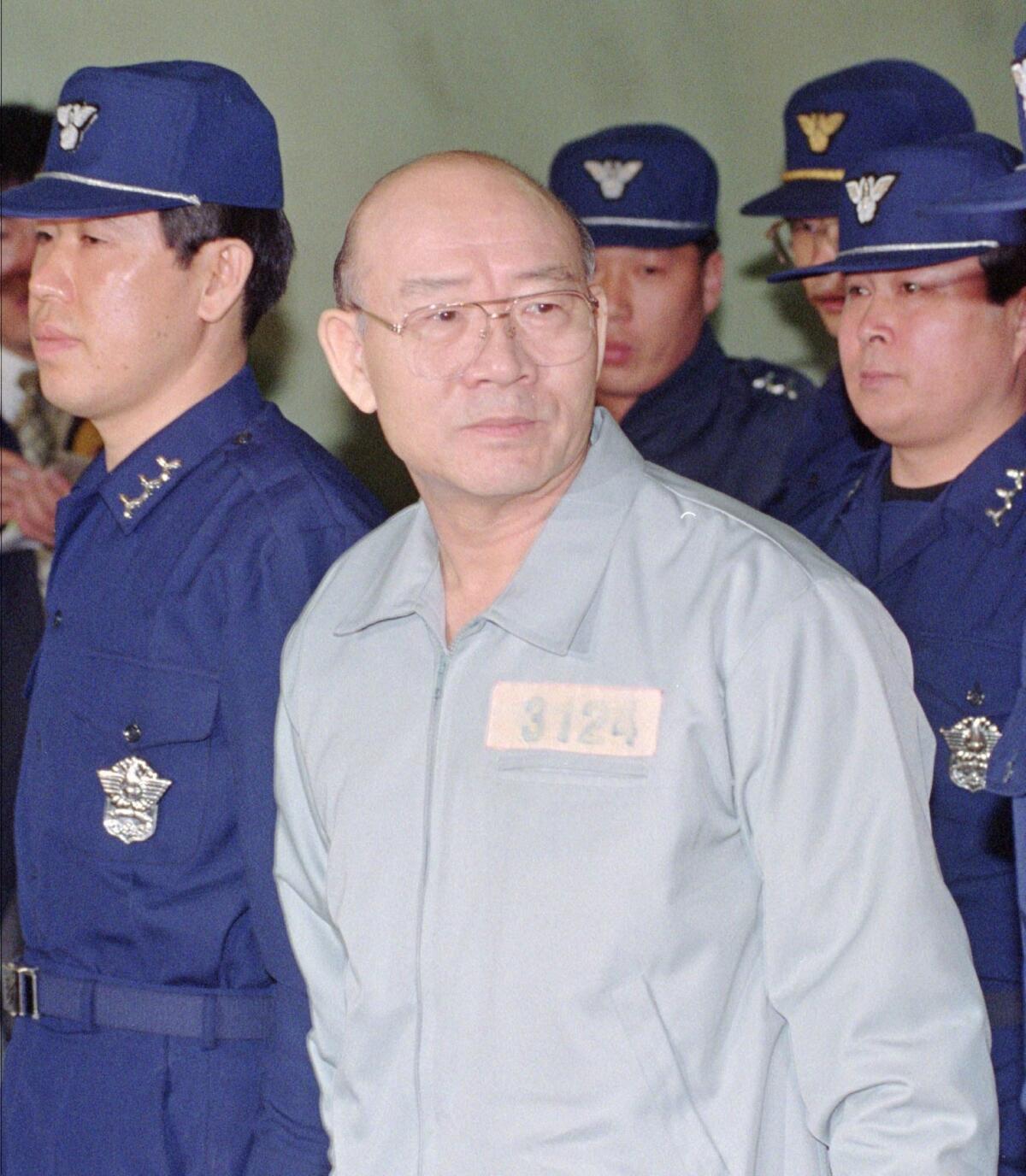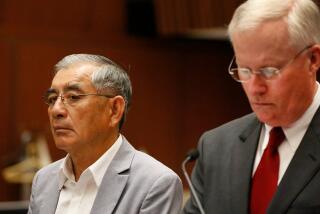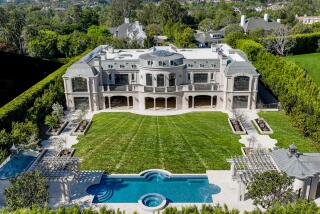U.S. returns $1.1 million in kleptocracy proceeds to South Korea

Former South Korean President Chun Doo-hwan, in a prison uniform, enters the Seoul Court House in 1996 for his first trial on charges stemming from a 1980 military coup and allegations of accepting secret funds.
U.S. prosecutors this week returned more than $1.1 million in seized assets linked to South Korea’s disgraced former president, Chun Doo-hwan, the Department of Justice said Tuesday.
The $1,126,951.45 was seized through forfeiture actions in Southern California and Philadelphia, where authorities found a tony white clapboard home in Newport Beach and a secured investment in a Pennsylvania company linked to Chun’s son, Chun Jae Yong.
The younger Chun has admitted to South Korean prosecutors that the funds came from his father, according to a complaint in the U.S. forfeiture case.
NEWSLETTER: Get the day’s top headlines from Times Editor Davan Maharaj >>
The sum seized by prosecutors here is a sliver of the $229 million of the criminal restitution Chun was ordered to pay by South Korean courts in 1996 for ill-gotten gains amassed through bribes from corporations such as Samsung, Hyundai and LG during his eight years as president in the 1980s.
Chun was also convicted on charges of mutiny, treason and bribery.
South Korean prosecutors, who have formed a task force to recover assets linked to Chun, told reporters there that with the transfer of forfeited funds from the U.S., authorities had recovered more than half of the restitution owed by Chun.
Chun had initially claimed he had less than $300 to his name and was unable to pay.
“The return of these assets is a powerful vindication of the rule of law, and an important victory for the people of the Republic of Korea,” Atty. Gen. Loretta E. Lynch said in a statement.
Chun, 84, rose to power in South Korea through a 1979 military coup. He declared martial law, ordered the Constitution rewritten and held a presidential election as the sole candidate. He eventually stepped down in the face of widespread protests.
Efforts to seize his funds, suspected of having been laundered through family members and a sprawling network of shell corporations and nominee accounts, were stepped up last year ahead of an impending deadline due to statute of limitations.
The U.S. forfeiture cases were brought as part of the Department of Justice’s Kleptocracy Asset Recovery Initiative.
For more California news, follow @vicjkim.
ALSO:
Police investigating body found in South L.A. refrigerator
Anyone out there want to claim this $63-million lottery ticket?
Thailand mystery: 2 detainees suspected of insulting monarchy die in custody
More to Read
Sign up for Essential California
The most important California stories and recommendations in your inbox every morning.
You may occasionally receive promotional content from the Los Angeles Times.











